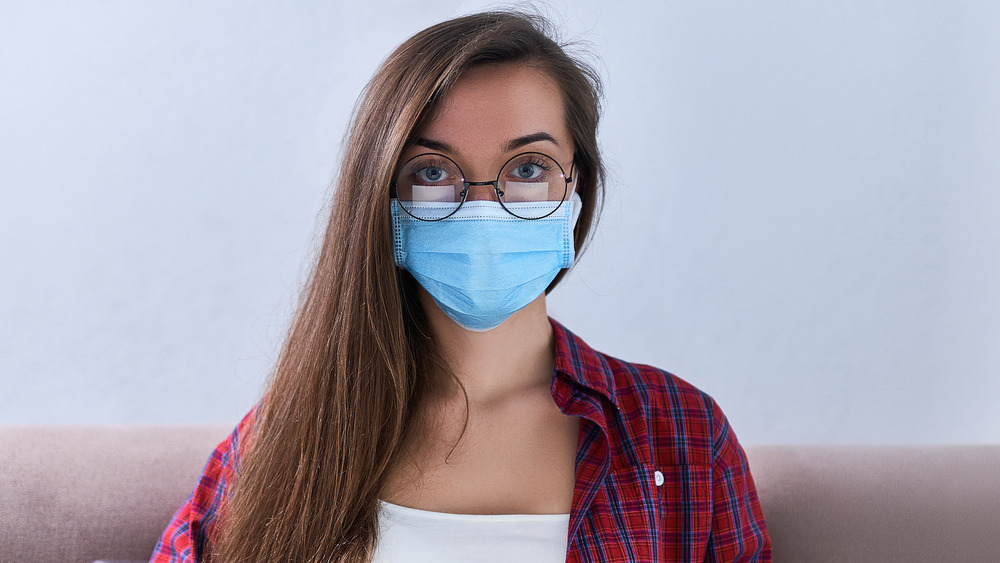The Surprising Ways Quarantine Is Messing With Your Body
If you think that spending hours sitting at home alone on the computer and/or staring at your TV or phone screen (in addition to experiencing an overwhelming amount of stress) during quarantine has not affected you, think again. COVID-19 has not only distorted our perception of time by destroying our "temporal cues" (via WebMD), but it has also affected our sleeping habits, mood, and our overall sense of wellbeing (via Allure).
"Some may feel an urge to drink more alcohol," Carolina Guizar, RD, and certified intuitive eating counselor tells Allure. "Some people will need to numb and distract themselves from the distress, while others may find themselves attracted to schedules and feel a need to be productive [...] Everyone will cope differently and there is no wrong way to do it."
While there's no "right" or "wrong" way to self-isolate, Guizar says that it's important to listen to your body's wants and needs — which includes getting plenty of rest and food, especially if your body is craving it.
"What I am observing in myself and my patients is a need for rest, limits on the news and social media, permission to eat whatever food they have access to without shame," Guizar adds, "and permission to get the bare minimum done."
We need social interaction to stay alive
Humans, much like rabbits, are social animals (via Rabbit.org). When our social interaction or social relationships are taken from us, we become deprived and "uncomfortable" (via Business Insider). However, the term "uncomfortable" may be a bit underwhelming when you consider the fact that, according to HealthAffairs.org, social isolation is causing morbidity (illness) and early mortality.
"If we think about loneliness as this adaptive response kind of like hunger and thirst, it's this unpleasant state that motivates us to seek out social connections just like hunger motivates us to seek out food," Julianne Holt-Lunstad, professor of psychology and neuroscience at Brigham Young University, tells Business Insider. In fact, studies show that people who have "weaker" social relationships are 50 percent more likely to die when compared to those with a larger and more vibrant network of friends (via Perspectives on Psychological Science).
So, what can you do? First, remember that, while you might feel lonely, you are not alone. You might not be able to physically spend time with your friends and family members, but you can do things together via video, like having virtual lunch dates, participating in happy hours, or hosting game nights (via Community Health Network). You can also ditch your screen and go outside for a breath of fresh (socially distanced) air.

